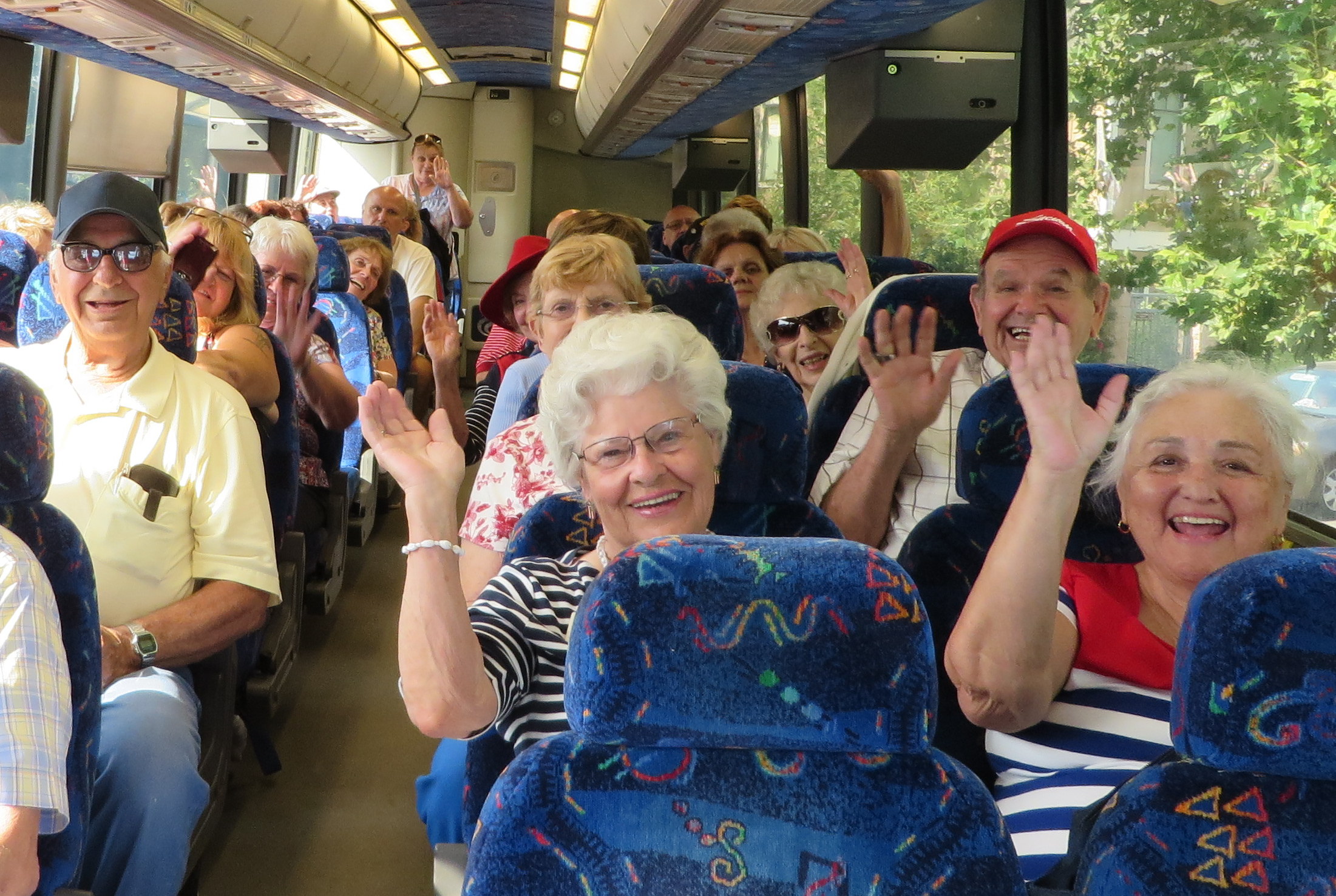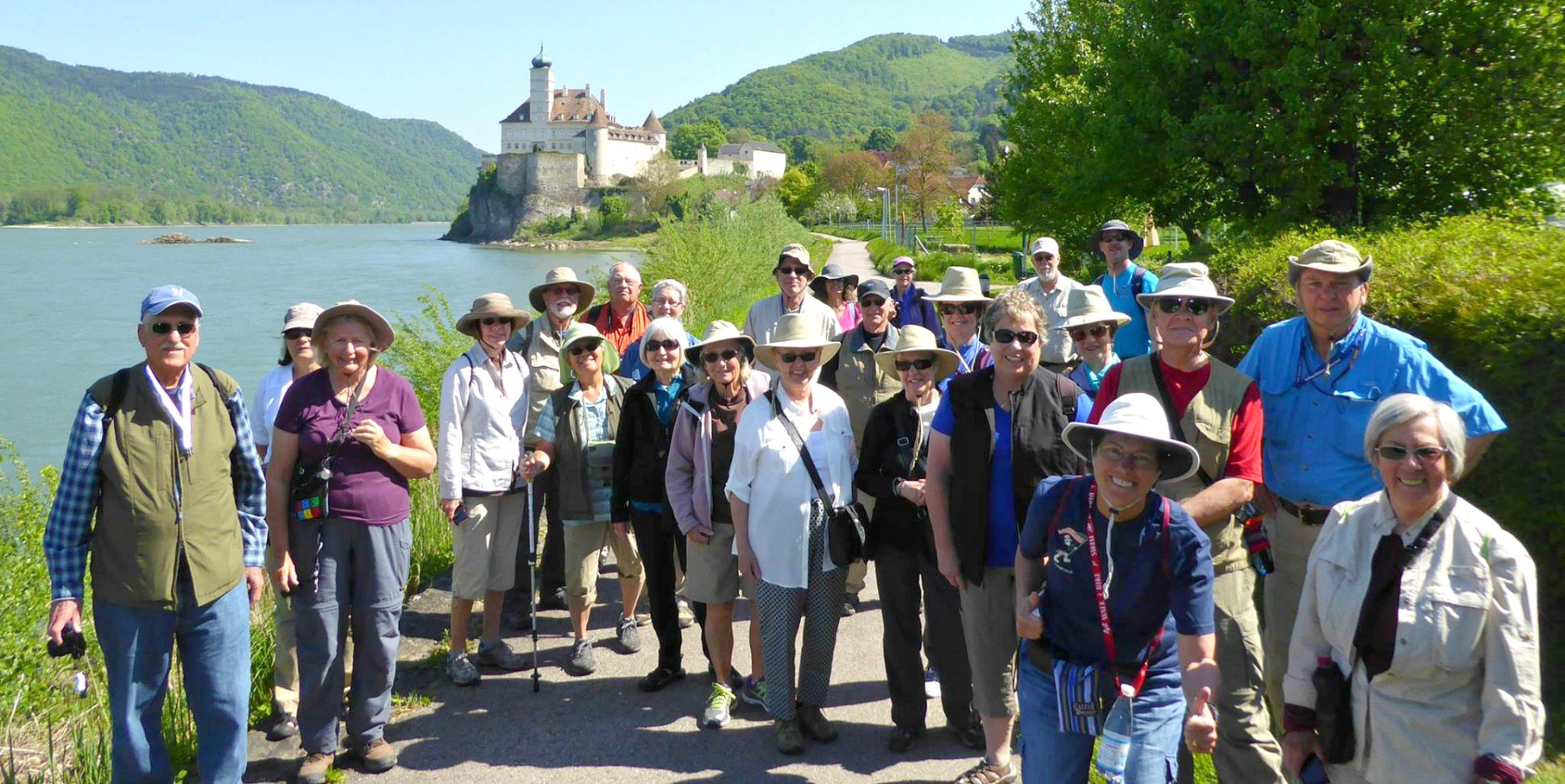Elderly travel tours represent a rapidly expanding sector of the tourism industry, catering to a demographic with unique needs and desires. This burgeoning market presents significant opportunities for tour operators who understand the specific requirements and preferences of older travelers. From meticulously planned itineraries that prioritize comfort and accessibility to engaging activities tailored to various interests and physical capabilities, the success of elderly travel tours hinges on thoughtful design and exceptional customer service.
This exploration delves into the market analysis, tour design considerations, marketing strategies, logistical requirements, and customer experience aspects vital to the thriving elderly travel tour business. We examine the competitive landscape, highlighting successful operators and their strategies, and offer insights into creating memorable and enriching travel experiences for older adults. The goal is to provide a comprehensive overview of this dynamic and increasingly important niche within the travel industry.
Market Analysis of Elderly Travel Tours
The global elderly travel market is experiencing significant growth, driven by increasing life expectancy, improved health and financial security among older adults, and a rising desire for fulfilling travel experiences. This burgeoning sector presents substantial opportunities for tour operators who cater to the unique needs and preferences of this demographic.
Size and Growth Potential of the Elderly Travel Market
The market for senior travel is substantial and expanding rapidly. While precise figures vary depending on the definition of “elderly” and the geographical region, reports consistently indicate a double-digit percentage annual growth rate. For example, a recent study by [insert reputable market research firm name and report title/link if available] projected a [insert percentage]% increase in the market value between [year] and [year].
This growth is fueled by factors such as the aging global population and the increasing disposable income of retirees in developed and developing nations. This translates into a vast and lucrative market for businesses specializing in senior-focused travel packages.
Key Demographics of Elderly Travelers Interested in Tours
The elderly travel market is diverse, but certain demographic trends are evident. The majority of travelers in this segment are aged 65 and above, with a significant portion falling within the 70-80 age bracket. Affluent retirees, particularly those with higher levels of education and disposable income, are more likely to participate in organized tours. Furthermore, the market includes both solo travelers and couples, with a growing number of multi-generational trips involving grandchildren.
Health considerations significantly influence trip choices; ease of access, accessible accommodations, and manageable itineraries are crucial factors.
Comparison of Different Types of Elderly Travel Tours
The elderly travel market caters to a wide range of interests and preferences. Adventure tours, while requiring a higher level of physical fitness, are gaining popularity, with options focusing on less strenuous activities like gentle hikes and scenic drives. Cruise tours remain a dominant force, offering a convenient and comfortable mode of transportation with built-in entertainment and amenities.
Cultural tours, emphasizing historical sites, museums, and local experiences, are particularly appealing to those interested in learning and exploration. Each type of tour commands a different price point and appeals to a specific segment of the elderly traveler market. For instance, luxury cruises target high-income individuals, while budget-friendly coach tours cater to those with more modest means.
Pricing Strategies Used by Successful Elderly Travel Tour Operators
Successful tour operators utilize various pricing strategies to cater to the diverse financial capabilities within the elderly travel market. Value-based pricing, emphasizing the overall experience and inclusive packages, is a common approach. Bundled packages offering flights, accommodation, excursions, and meals often prove more attractive than individual components. Dynamic pricing, adjusting prices based on demand and seasonality, is also used to maximize revenue.
Finish your research with information from best places to go for senior trip.
Senior discounts and early-bird offers are frequently implemented to incentivize bookings. Finally, offering a range of tour options, from budget-friendly to luxury experiences, allows operators to tap into various segments of the market.
Competitive Landscape of the Elderly Travel Tour Industry
| Company Name | Tour Types | Target Market | Unique Selling Proposition |
|---|---|---|---|
| Company A | Luxury Cruises, Cultural Tours | Affluent retirees, couples | All-inclusive luxury experiences with personalized service |
| Company B | Adventure Tours, Walking Tours | Active retirees, solo travelers | Focus on moderate physical activity and engaging local experiences |
| Company C | Budget-friendly coach tours, escorted group tours | Retirees on a budget, social travelers | Affordable prices, social interaction, and convenient itineraries |
| Company D | Multi-generational family tours, themed tours | Families with older relatives, specific interest groups | Tailored itineraries to suit different age groups and interests |
Marketing and Promotion Strategies

Reaching the lucrative market of elderly travelers requires a multi-faceted approach that acknowledges their unique preferences and communication styles. Effective marketing must build trust, leverage established relationships, and showcase the value proposition of senior-focused travel experiences.Effective marketing channels must cater to the preferences of the elderly demographic. While digital channels play a role, traditional methods retain significant importance. A balanced strategy is crucial for optimal reach and engagement.
Marketing Channels for Elderly Travelers
The ideal marketing mix for elderly travelers incorporates both traditional and digital channels. Print media, particularly well-designed brochures and advertisements in publications targeting this demographic (like retirement magazines or newspapers with a strong local focus), remain highly effective. Online advertising, specifically targeted campaigns on websites frequented by seniors (such as those focusing on health, retirement planning, or hobbies popular among older adults), should be employed.
Social media, while used less extensively by this demographic compared to younger generations, can still yield positive results through targeted Facebook or Instagram ads focused on specific interests and travel styles. Furthermore, partnerships with retirement communities, senior centers, and travel agencies specializing in senior travel can provide access to highly receptive audiences.
Building Trust and Credibility with Elderly Travelers
Trust is paramount when marketing to elderly travelers. Transparency in pricing, clear and concise communication regarding tour details, and readily available customer service are essential. Featuring testimonials from past travelers, particularly those within the target age range, significantly boosts credibility. Highlighting the experience and expertise of the tour guides and operators, emphasizing safety protocols, and showcasing the accessibility of tour destinations and accommodations further strengthen trust.
A strong online presence with positive reviews on reputable travel review sites is also crucial.
Testimonials and Case Studies
Testimonials and case studies provide powerful social proof. For example, a testimonial might feature a quote from a past traveler like, ” The tour was wonderfully paced, and our guide, Margaret, was simply delightful. I felt safe and well-cared for the entire time.” Case studies can detail a specific trip, showcasing the itinerary, highlighting positive aspects like comfortable accommodations and engaging activities, and featuring photographs of happy travelers enjoying the experience. These should be readily available on the website and in marketing materials.
Promotional Campaign for a New Elderly Travel Tour
A new tour focusing on “Coastal Charms of Maine” could emphasize the following: comfortable accommodations in charming seaside inns, gentle walking tours of picturesque coastal towns, delicious local seafood cuisine, and opportunities to enjoy scenic coastal drives. The campaign slogan could be ” Discover the Beauty of Maine: A Relaxed and Rewarding Journey.” Marketing materials would highlight the relaxed pace, comfortable transportation, and the focus on cultural experiences tailored to the interests of older adults.
The value proposition is a stress-free, enriching travel experience tailored to the specific needs and preferences of the elderly.
Organizing Marketing Materials
Effective marketing materials are crucial. Here’s a structured approach:* Website: A user-friendly website with high-quality images and videos showcasing the tour, detailed itineraries, pricing information, booking options, and a prominent section for testimonials and reviews.
Brochures
Visually appealing brochures with large, easy-to-read fonts, clear descriptions of the tour itinerary, and high-quality photographs of the destinations and accommodations.
Social Media
Targeted Facebook and Instagram ads featuring stunning visuals and concise messaging highlighting the key benefits of the tour.
Print Advertisements
Advertisements in publications targeting the elderly demographic, featuring compelling visuals and a clear call to action.
Email Marketing
Targeted email campaigns to subscribers and past customers, highlighting special offers and new tours.
Logistics and Support Services

Planning seamless and safe travel experiences for elderly individuals requires meticulous attention to detail across various logistical areas. Failure to adequately address these aspects can significantly impact the enjoyment and well-being of participants, potentially leading to negative experiences and reputational damage for tour operators. This section details the crucial logistical components and support services necessary for successful elderly travel tours.
Transportation Considerations for Elderly Travelers
Safe and comfortable transportation is paramount. This necessitates the use of vehicles equipped for accessibility, such as those with ramps and ample space for wheelchairs or walkers. Furthermore, travel routes should prioritize minimizing travel time and incorporating frequent rest stops to accommodate the physical limitations of elderly participants. Consideration should also be given to the use of smaller, more manageable group sizes to facilitate ease of movement and prevent overcrowding.
For example, utilizing smaller coaches instead of large buses, or even private car transfers in some situations, may be beneficial. Pre-arranged airport transfers, with assistance with luggage, are also crucial.
Accommodation for Senior Travelers: Comfort and Accessibility
Accommodation choices significantly impact the overall travel experience. Hotels and lodgings should be selected based on their accessibility features, including single-level access, elevators, and suitably sized rooms with grab bars in bathrooms. Proximity to medical facilities is another vital factor to consider. Furthermore, the availability of amenities such as readily accessible restaurants and comfortable seating areas within the accommodation is important for elderly travelers’ comfort and convenience.
For instance, choosing hotels with dedicated concierge services for assistance with needs can be highly beneficial.
Medical Support and Emergency Services
Comprehensive medical support is non-negotiable. This involves having access to readily available medical professionals, ideally with a designated medical liaison throughout the tour. Travel insurance policies should cover emergency medical evacuations and hospitalizations. A detailed medical information form for each participant, including pre-existing conditions and emergency contacts, should be collected prior to the tour. A readily available emergency contact number and plan should be clearly communicated to all participants.
For instance, a dedicated 24/7 helpline manned by medical professionals or experienced tour operators familiar with handling medical emergencies abroad is essential.
The Role of Tour Guides in Ensuring Safety and Well-being
Tour guides play a crucial role in ensuring the safety and well-being of elderly travelers. Their responsibilities extend beyond providing information; they must act as attentive caregivers, monitoring participants’ health and providing assistance as needed. This includes adapting the tour itinerary to accommodate physical limitations and ensuring participants stay hydrated and rested. Thorough training in first aid and emergency response protocols is essential for tour guides.
Their ability to anticipate potential problems and react effectively to unexpected situations is critical. For example, they should be equipped to handle situations like falls or sudden illnesses, and know how to contact emergency services efficiently.
Travel Insurance Options for Elderly Travelers
Several travel insurance options cater specifically to the needs of elderly travelers. These policies typically offer higher coverage limits for medical emergencies and hospitalization, recognizing the increased health risks associated with aging. Some policies also include provisions for pre-existing conditions, repatriation, and personal liability. It’s crucial to compare policies carefully, considering factors such as coverage amounts, exclusions, and premium costs.
Consider policies that offer 24/7 emergency assistance services and medical evacuation coverage, including air ambulance transport. For example, insurers like Allianz and World Nomads often offer plans specifically designed for seniors, with varying levels of coverage.
Ideal Support System for Elderly Travelers: 24/7 Contact and Assistance
An ideal support system provides comprehensive assistance around the clock. This includes a dedicated 24/7 helpline accessible to both travelers and their families. The support team should be capable of handling various issues, from minor inconveniences to medical emergencies. On-site support personnel, ideally fluent in the language of the travelers and familiar with local customs, are also crucial.
This ensures immediate response to any issues that may arise. Regular check-ins with participants throughout the day can help identify potential problems early on. For example, a system utilizing a combination of a dedicated phone line, a mobile app for communication, and on-site staff would provide a robust and responsive support system.
The elderly travel market offers substantial potential for growth and innovation. By focusing on accessibility, personalized experiences, and exceptional customer service, tour operators can cater to the specific needs of this demographic and create truly memorable journeys. Understanding the nuances of this market, from marketing strategies to logistical considerations, is crucial for success in this rewarding and increasingly competitive field.
The future of elderly travel tours promises diverse and enriching experiences, tailored to the unique desires and needs of an active and discerning traveler base.



